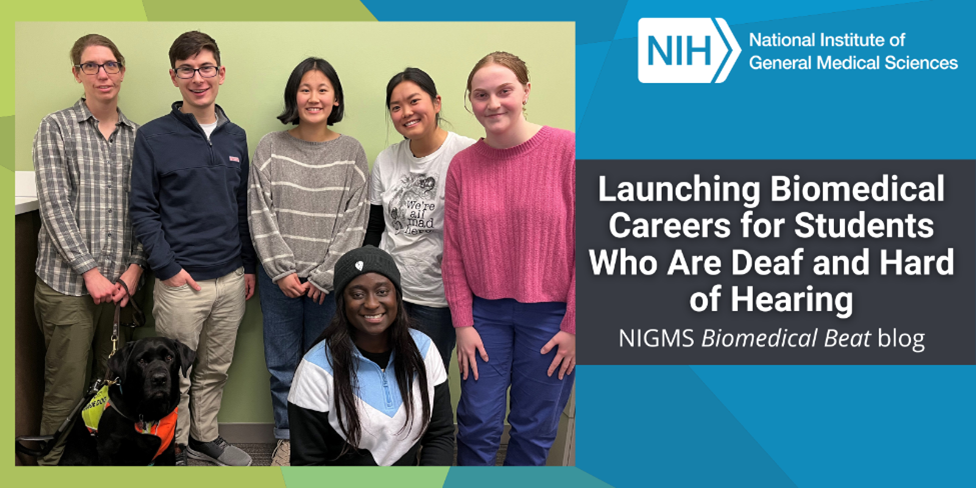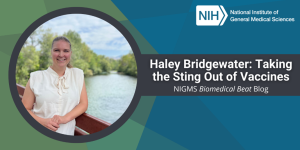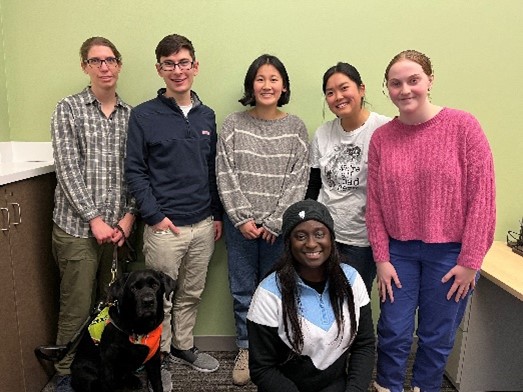
Scientists who are deaf and hard of hearing (DHH) are underrepresented at all career stages, especially at the Ph.D. level. To address this, the Undergraduate Research Training Initiative for Student Enhancement (U-RISE) training program for undergraduates who are deaf and hard of hearing at the Rochester Institute of Technology (RIT) in Rochester, New York, has committed to lifting barriers and increasing DHH representation in science.
Part of RIT’s National Technical Institute for the Deaf (NTID),
the program is now in its fifth year and prepares undergraduate students who are DHH to enter graduate programs through community-building activities, mentored research training, communication access services like interpretation, and much more. We’ve interviewed two RIT U-RISE students and its director to learn how the program supports its trainees.
Meeting Students’ Needs
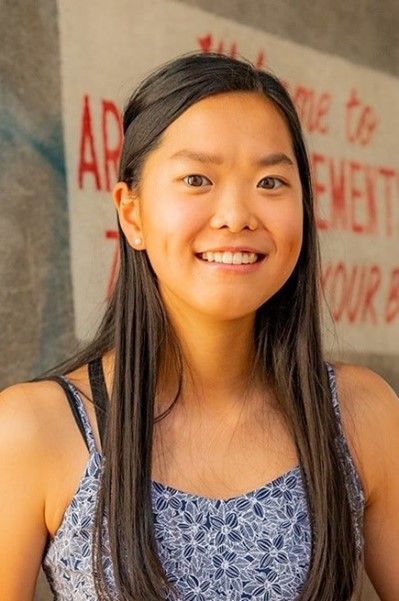
In high school Bo Allaby fell in love with the idea of doing research to learn more about why we think or act in certain ways. Now, Bo is a third-year psychology student at RIT and an undergraduate researcher through the U-RISE program. With her research mentor, Rebecca Houston, Ph.D., Bo is investigating how some people cope with brain damage more effectively than others. They’re currently examining various factors, such as age, alcohol use, and the person’s perception of their own cognitive functioning (e.g., memory), through an online survey study, and they hope to conduct a follow-up study in person.
Conducting research with a faculty member is only one of the benefits of RIT U-RISE, according to Bo. “U-RISE ensures that everyone has equal access to events on campus by providing interpreters or closed captioning. They also host workshops where scientists share their research and personal experiences. Additionally, the program offers professional communication training, which has been helpful when preparing for conference presentations,” Bo says.
In November 2022, the RIT U-RISE students traveled to Anaheim, California, to attend the Annual Biomedical Research Conference for Minoritized Scientists. There, Bo had the opportunity to present a research poster on her work with Dr. Houston. “Overall, U-RISE has facilitated my research journey and gotten me on the path to graduate school without having to worry about some of the logistics or financial aspects. They truly do their best to make sure you have what you need to succeed,” Bo says.
After graduation, Bo hopes to pursue a Ph.D. in clinical psychology.
Building Community
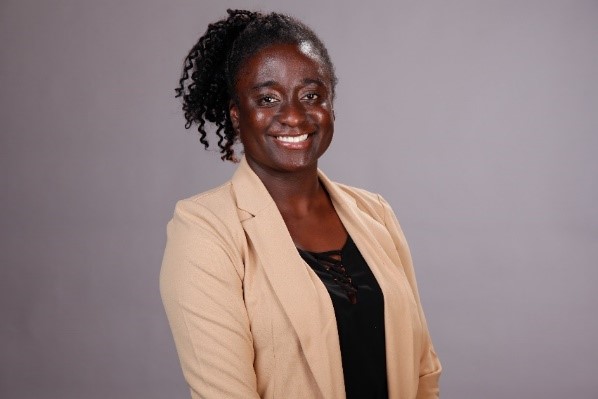
Maameyaa Asiamah’s interest in science began at a high school sleepaway camp where she was exposed to the many different fields of science, and she ultimately fell in love with hands-on lab research. This love led her to earn an associate degree in laboratory science technology at RIT’s NTID.
Maameyaa found RIT U-RISE while she was considering what to do after completing her associate degree. “I was in an awkward stage because I hadn’t really decided what to do next,” she says through an American Sign Language (ASL) interpreter. “Everything about this program matched my needs, and I thought it would be a great challenge for me, so I went ahead and applied.” She’s now participating in RIT U-RISE while pursuing a bachelor’s degree in biochemistry.
Maameyaa appreciates the community aspect of RIT U-RISE. She wasn’t sure what to expect, but having peer groups and relationships with faculty has helped her overcome the challenges of earning a new degree as a student who is DHH. “I’ve really treasured being able to share thoughts, data, and research with the other students in U-RISE. If I’m stuck on something, it’s nice to bounce ideas off each other, because we have a lot of shared experiences that others don’t,” Maameyaa says.
Like Bo, Maameyaa hopes to pursue a Ph.D. down the road. For now, she’ll continue working with her research mentor, Todd Pagano, Ph.D., on using nanotechnology to remove pollutants from water. Maameyaa believes that the knowledge and experience she’s gaining through RIT U-RISE will prepare her for her future career. “There aren’t many other students like me—a Black woman who is deaf—in research. It’s a position I cherish and hope to encourage others to pursue,” she says.
Evolving Over Time
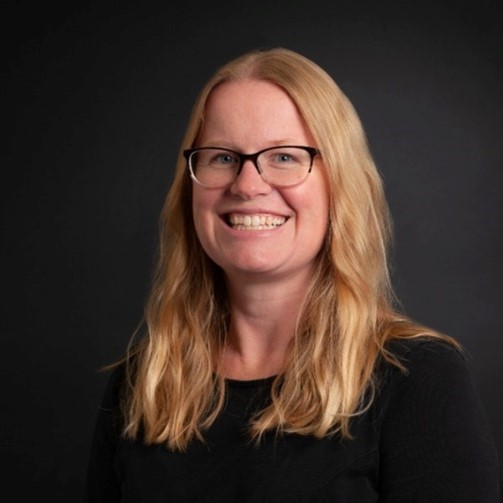
Bonnie Jacob, Ph.D., the director of RIT U-RISE, is proud of how the program has adapted over time to better meet students’ needs. “When we started out, we wrongfully assumed all our trainees would use ASL. As things progressed, we realized this wasn’t true,” she says. Now, ASL and closed captioning are both available to RIT U-RISE trainees. “We’ve added ASL presentation skills training for students who sign, and we’ve partnered with our communication and services department at NTID for students who want training in communication skills such as email writing or networking,” she says. The program also increased access to mental health support in response to the challenges the students were facing due to the COVID-19 pandemic.
Looking forward, Dr. Jacob hopes to continue to evolve the program to add more student support, including resources for trainees who’ve graduated to help them in the next stage in their careers. She hopes to see other institutions make their programs more accessible for students who are DHH, and she’s eager to aid in that transition as well as support the development of other programs like RIT U-RISE.
RIT U-RISE is funded by NIGMS grant T34GM145542.
Other Posts You May Like
- Understanding Signaling Through Cell Membranes: Q&A With Chrystal Starbird
- Bil Clemons: Following Scientific Curiosity
- From Science Fair to Science Lab: Q&A With Chelsey Spriggs
- Haley Bridgewater: Taking the Sting Out of Vaccines
- Investigating the Inner Workings of Ion Channels With Sudha Chakrapani


